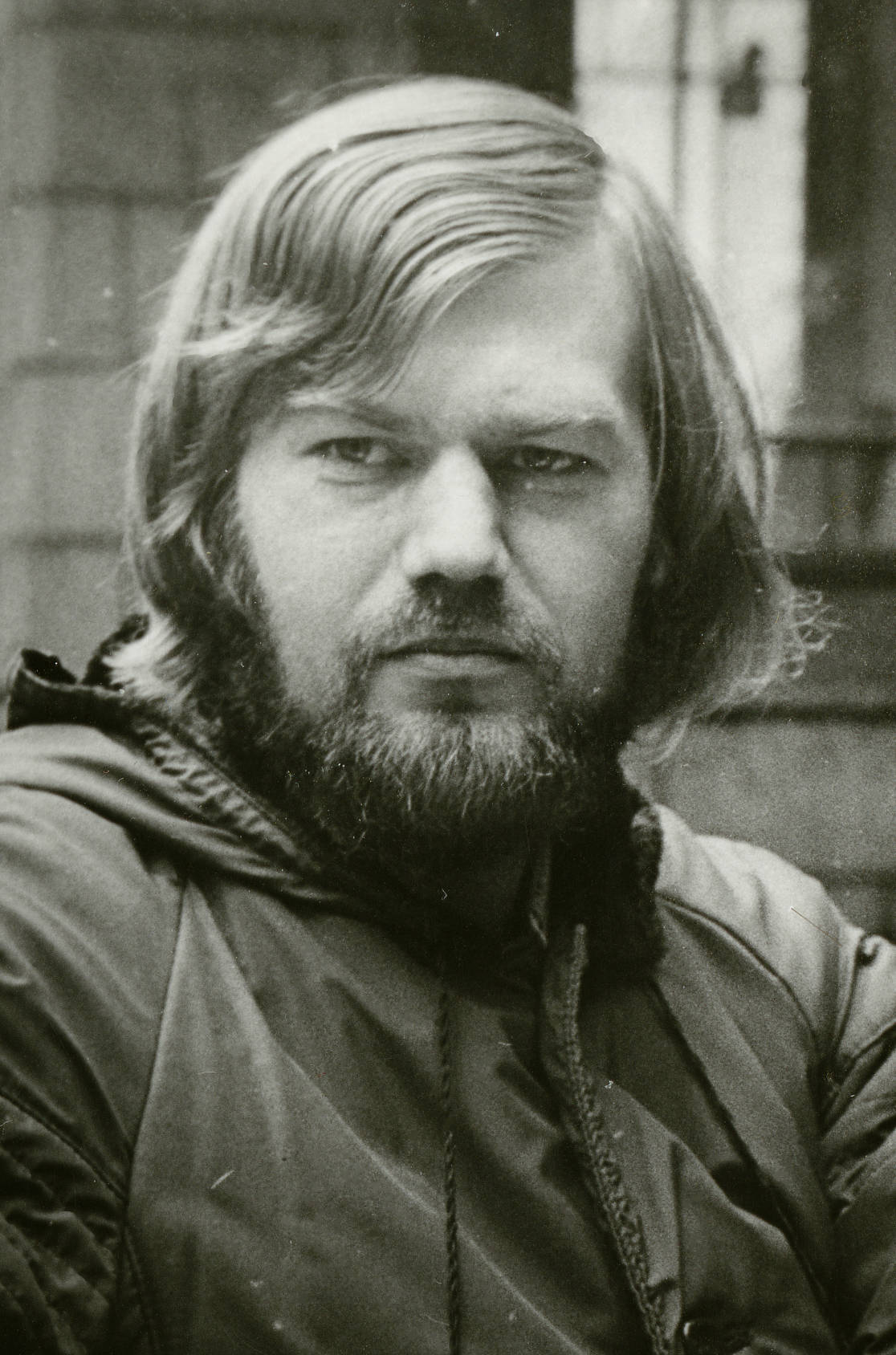
Lembit Kurvits
Lembit Kurvits (15. V 1954 – 20. II 2017) was an Estonian poet.
Kurvits was born at Mammaste, near Põlva, into a family on a collective farm. He attended Mammaste primary school and Põlva secondary school. From the age of 13 he and his two brothers were put into Pärnu children’s home, where he stayed until his sixteenth year and attended primary school number 5 in Pärnu. From 1975 to 1978 he attended Põlva secondary school through distance learning and from 1978 to 1979 the Tallinn Pedagogical Institute. From 1970 he worked in many different jobs, among others as a builder, electrician, librarian, teacher in a vocational school, junior researcher at the Tartu Ethnographic Museum, proof-reader for the publishing house of the Estonian Agricultural Academy, and as a freelance writer. From his three marriages Kurvits had three children; his last marriage was dissolved in 1992. In the early nineteen-nineties his schizophrenia worsened, aggravated by alcohol consumption. Disorderly behaviour arising from his bouts of illness resulted in his incarceration in Patarei prison from autumn 1996 to summer 1997. After this Kurvits was active mainly in Tartu, where he spent some time in a psychiatric hospital, and was sometimes homeless. From the beginning of the millennium he was supported by the city of Tartu and the Writers’ Union. For the last decade of his life Kurvits was mostly in various Estonian nursing homes. He died at Keila nursing home, and is buried in the Metsakalmistu cemetery in Tallinn.
Kurvits began writing poetry while still in the Pärnu children’s home. From the very beginning, Kurvits’ favourite theme was the scenery of his childhood and longing for care and love. To some extent Kurvits wrote in his own home dialect. Critics have tended to single out the verses he produced in the nineteen-eighties, which appeared in the poet’s first collections: Väike-Kamari õhtud (‘Evenings in Väike-Kamari’, 1981), Tühermaa (‘The Wasteland’, 1986), Armastuseta (‘Without Love’, 1990) and Meie ühine vend armastus (‘Our Common Brother, Love’, 1991). In the autobiographical short-story collection Vanad soome saapad. Jutte ja novelle 1976-1993 (‘Old Finnish Boots: Tales and Stories 1976-1993’, 1997), a certain humorous fantasy element is noticeable. The collection Kakskümmend viis luuletust (‘Twenty-five Poems’, 2001) aroused a lot of attention for the one piece of prose in the book, a confessional memoir with the title 1993-2000, in which Kurvits recalls his time in prison and hospital, and his struggle with illness and homelessness. Kurvits’ last book, one that was well received by the critics, was the compilation Tõrvalill (‘The Catchfly’, 2003). His poems have appeared in several anthologies, such as Kõik muutub lauluks. Luule ja luuletaja eesti luules (‘Everything Turns into Song. Poetry and the Poet in Estonian Poetry’, 2005), Lumi see me ühine (‘The Snow we Have in Common’, 2010), and Viinakuu. Alkohol eesti luules (‘Spirit Moon: Alcohol in Estonian Poetry’, 2010). Some of Kurvits’ poems and prose pieces which appeared latterly in periodicals have not appeared in book form. According to the author, many manuscripts were also lost.
Kurvits published a children’s book depicting the life and scenery of his home district, Taevaskojalapsed (‘Children of Taevaskoja’, 1993). Kurvits was also somewhat active as a critic. A film has been made about him, Kurvits Lootuse tänavalt (‘Kurvits from Hope Street’, 2014, directed by Vahur Laiapea).
S. V. (Translated by C. M.)
Books in Estonian
Poems
Väike-Kamari õhtud. Tallinn: Eesti Raamat, 1981, 78 lk.
Tühermaa. Tallinn: Eesti Raamat, 1986, 86 lk.
Armastuseta. Tallinn: Eesti Raamat, 1990, 62 lk.
Meie ühine vend armastus. Illustreerinud Ilmar Kruusamäe. Tartu: Koda, 1991, 78 lk.
Matle laul. Pühendatud tütrele. Illustreerinud Ilmar Kruusamäe. Tartu: Elmatar, 1994, 77 lk.
Kakskümmend viis luuletust. Järelsõna: Priidu Beier. Tallinn, Huma 2001, 62 lk. [Sisaldab ka meenutuse ‘1993–2000’.]
Tõrvalill. Luulet ja mõtteid. Tallinn: Eesti Raamat, 2003, 215 lk.
Stories
Taevaskojalapsed. Pildid joonistas Ülle Meister. Tallinn: Tiritamm, 1993, 31 lk. [Children’s book.]
Vanad soome saapad. Jutte ja novelle 1976–1993. Tartu, Elmatar 1997, 79 lk.
Kakskümmend viis luuletust. Järelsõna: Priidu Beier. Tallinn, Huma 2001, 62 lk. [Sisaldab ka meenutuse ‘1993–2000’.]



